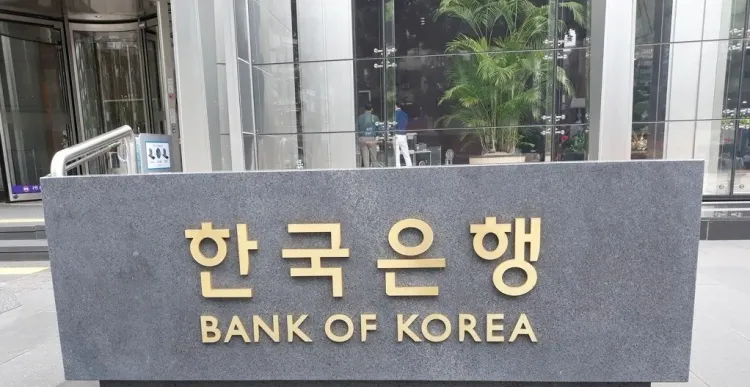Consumer Sentiment Declines in March Amid Growth Concerns: BOK

Synopsis
Key Takeaways
- Consumer sentiment index decreased to 93.4 in March.
- First decline in three months.
- Negative outlook on household income and private spending.
- Economic growth forecast lowered to 1.5% for 2025.
- Bad loans remain stable in South Korean banks.
Seoul, March 25 (NationPress) Consumer sentiment in South Korea has deteriorated in March amid escalating worries about economic growth due to sluggish domestic demand and declining exports, as reported by the central bank on Tuesday.
The composite consumer sentiment index fell to 93.4 this month, a decrease of 1.8 points compared to February, based on the survey from the Bank of Korea (BOK).
This indicates the first decline in three months; the index had previously dropped to a two-year low of 88.2 in December, largely triggered by President Yoon Suk Yeol's unexpected declaration of martial law. However, it rebounded to 91.2 in January and further increased to 95.2 in February, according to reports from Yonhap news agency.
A reading above 100 indicates that optimists outnumber pessimists, while a score below that benchmark suggests the opposite.
The survey indicates that consumers anticipate a decline in national economic conditions and the job market in the upcoming months due to slowing exports and a forecast of weaker-than-expected economic growth this year.
Furthermore, they hold a pessimistic view regarding future household income and private expenditure, stated the BOK.
"Concerns about growth momentum have intensified, with uncertainties surrounding the Trump administration's tariff policies and the domestic political landscape," remarked a BOK official.
The BOK predicts that the South Korean economy will grow by 1.5 percent in 2025, a slowdown from last year's 2 percent growth.
In addition, data released on Tuesday showed that the volume of bad loans at South Korean banks remained largely unchanged from three months prior during the fourth quarter.
As of the end of December, loans categorized as substandard or below (SBL) held by local banks totaled 14.8 trillion won (approximately US$10.09 billion), reflecting an increase of 0.3 trillion won from three months earlier, according to data from the Financial Supervisory Service.
The proportion of SBLs in relation to total outstanding loans remained at 0.53 percent at the end of December, unchanged from three months earlier.
The ratio of business loans classified as SBLs was 0.65 percent as of the end of December, consistent with three months earlier, while the ratio for household loans rose by 0.02 percentage points to 0.29 percent, according to the financial regulator.









